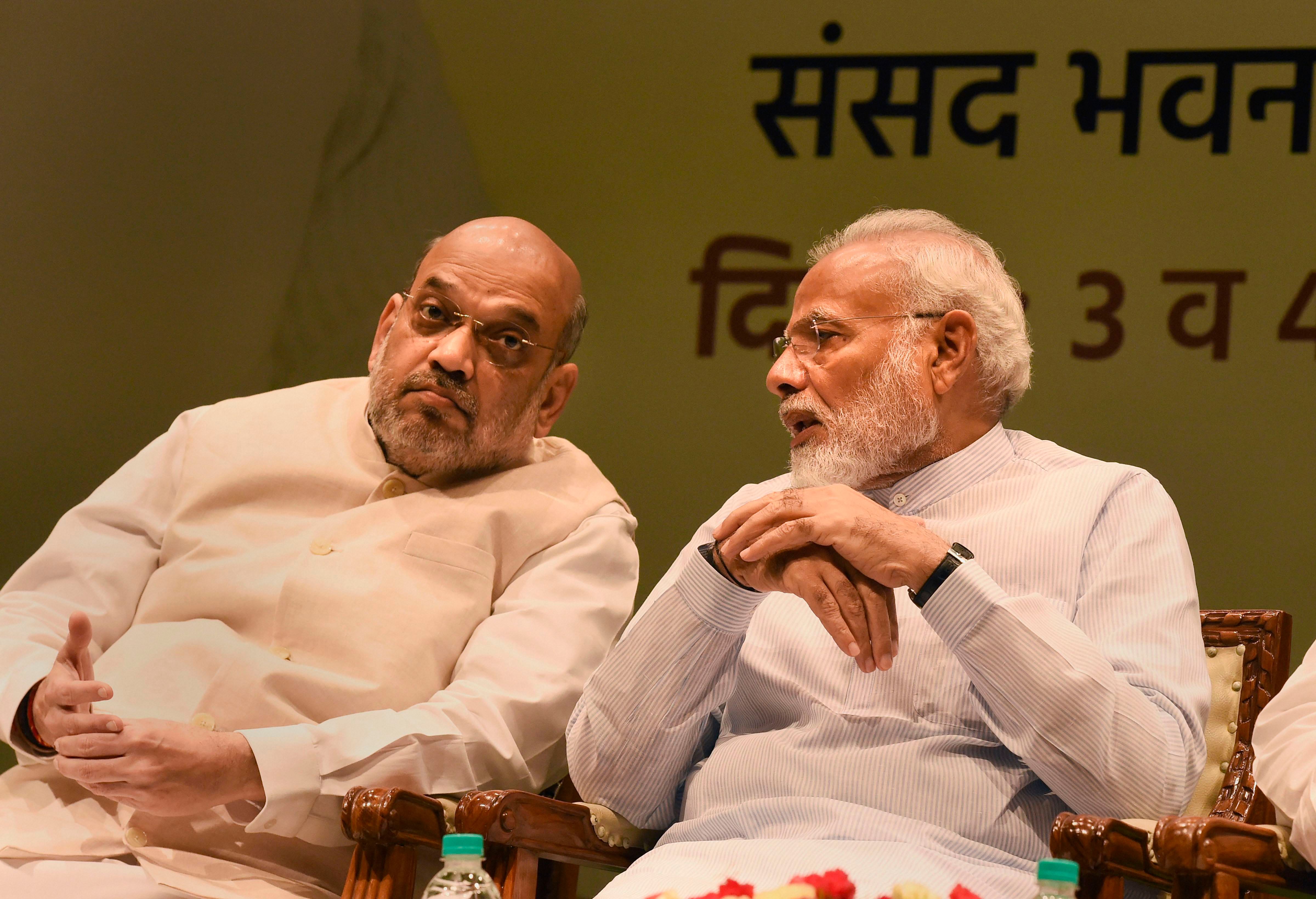
As the AAP’s broom swept Delhi, winning Arvind Kejriwal the state for a third consecutive term, it was realization yet again for the BJP that Delhi has become its Achilles heel.
Do what you may. Win how many ever municipal elections or even Lok Sabha polls but the state of Delhi is still a distant dream for you.
Since 1998, when the Congress ousted the Sushma Swaraj-led BJP from power, the BJP has tried every trick in the trade to wrest the crown back---deploying doctor Harsh Vardhan, cop Kiran Bedi to Bhojpuri singer Manoj Tiwari but the Delhi seat of power eluded it. Even the skills and strategy of the BJP’s Chanakya Amit Shah could not alter the electoral limitations of the saffron party in Delhi.
While Delhi is a small state with just seven Lok Sabha seats (all of them won by the BJP just eight months back), the ramifications of Delhi defeat travel far and wide more so if a party has won 90 per cent of the total seats.
Also, when it happens at a time when the BJP is riding high on Hindutva nationalism pitch and has left no stone unturned, mobilizing all possible resources---from a vitriolic campaign to a blitzkrieg of ministers, turning the contest into a prestige battle.
Three BJP leaders -- Kapil Mishra, Union Minister Anurag Thakur and Lok Sabha MP Pravesh Sahib Singh Verma -- were barred from election campaigning for 48, 72 and 96 hours respectively for their controversial shoot and Shaheen Bagh remark as well as invoking Pakistan while another Union Minister Giririaj Singh went to the extent of alleging that suicide bombers are being raised in Shaheen Bagh and urging voters to prevent Delhi from becoming an Islamic State. Karnataka BJP MP Tejasvi Surya projected a specture of a return of “Mughal Raj”. Home Minister Shah told voters in the constituency to press the button there in a manner that the current is felt in Shaheen Bagh.
Post results, the tone and the tenor of the BJP leaders were different. Mishra, who quit the AAP and joined the BJP before Delhi polls, underlined the “need to review why we lost Delhi state for a fifth consecutive term. Maybe people have some expectations from us which we have failed to meet.”
The real challenge before the BJP is to re-invent more so when it has a new party chief in J P Nadda and the ace strategist Shah, donning the sensitive role of Home Minister, may not be able to concentrate more on organization work.
Delhi results offer unique possibilities to re-define and alter the political narrative. The BJP may look forward to strengthening its regional leadership in states. To begin with, the BJP is already on way to induct Babulal Marandi, its first Jharkhand Chief Minister back in the party on February 17, a move that will be complementary for both and address the issue of lack of a popular face in the state for the BJP.
The BJP has seen the limitation of its “goli maaro” narrative while the Congress, whose leaders sat with protestors at Shaheen Bagh and Jamia and JNU, also failed to make an impressive impact in the Delhi polls.
AAP’s Kejriwal, through his recital of Hanuman Chalisa, and his temple talk has in a subdued manner tired to do what Rahul Gandhi had somewhat done during the 2017 Gujarat polls, hopping from one to temple to another and turning into a ‘janeudhaari Brahmin”. Kejriwal’s one was the smarter one minus much theatrics, something unusual for the otherwise flamboyant leader.
The results may dig in some better sense in the BJP, which may realize the limitations of polarization vis-à-vis a powerful development narrative. The results may also prompt the non-BJP parties to eschew from appeasement politics and give a fillip to the development narrative.
